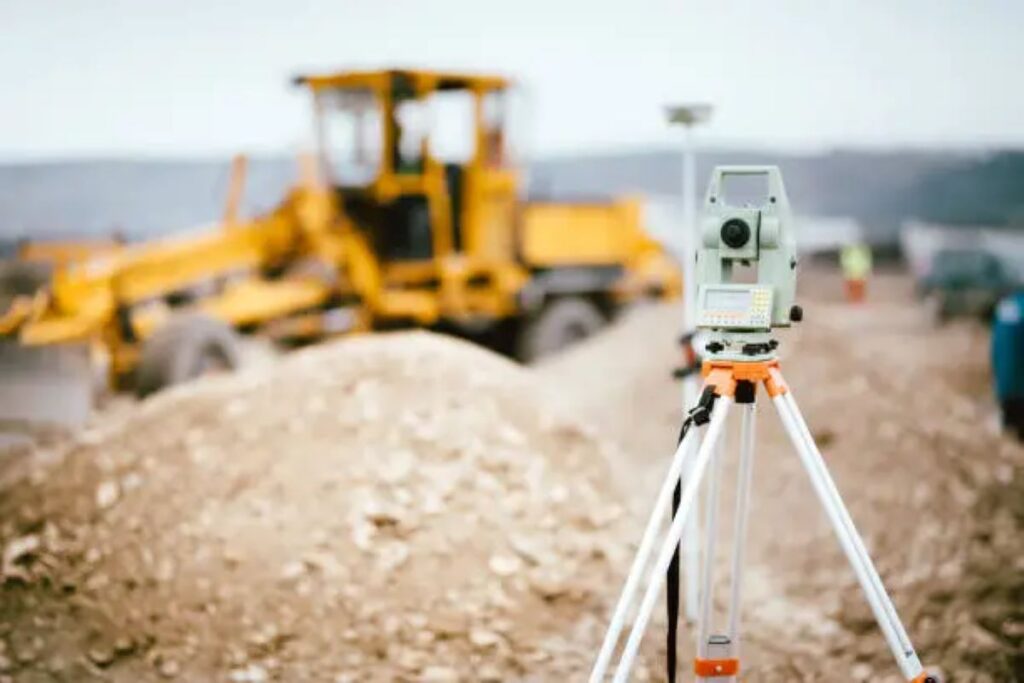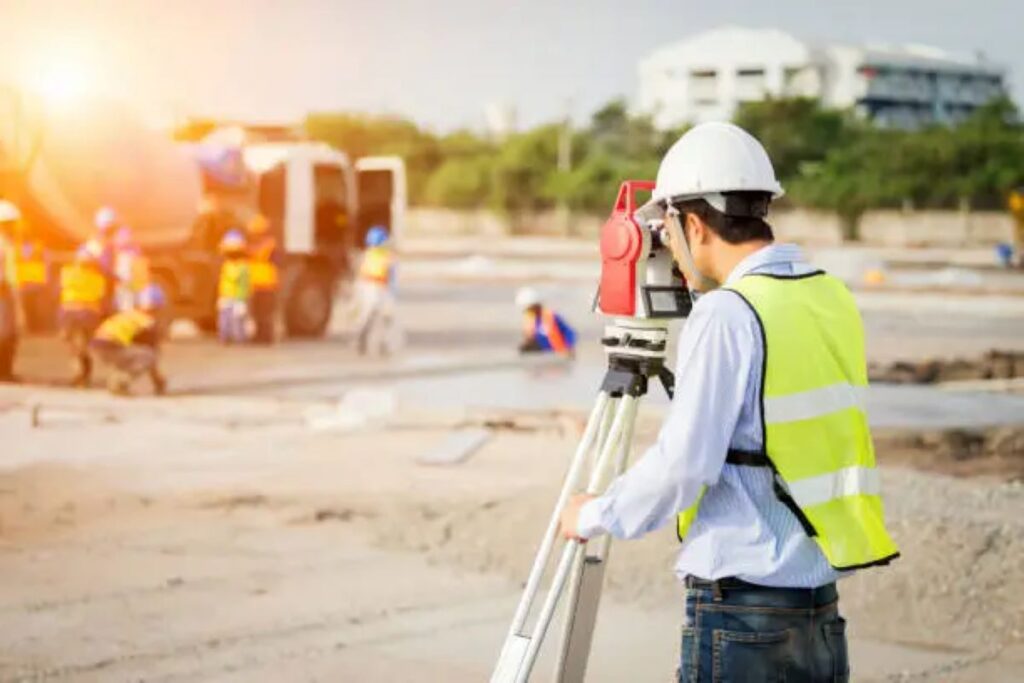In the realm of construction, efficiency is paramount. The ability to complete projects on time and within budget while maintaining high standards of quality is crucial for success. One of the pivotal roles in achieving this efficiency is that of the survey engineer. Survey engineers bring a wealth of expertise and technological acumen to the table, ensuring that construction projects are executed with precision and accuracy. This article delves into the multifaceted ways in which survey engineers enhance construction efficiency, exploring their roles, responsibilities, and the technologies they employ.
The Role of a Survey Engineer in Construction
Understanding Site Conditions
Survey engineers play a critical role in understanding and analysing site conditions before any construction begins. They conduct thorough surveys to gather data about the land, including topography, boundaries, and existing structures. This information is vital for architects and engineers to design structures that are not only feasible but also optimised for the specific conditions of the site. By providing accurate and detailed site data, survey engineers help prevent costly errors and rework during the construction phase.
Moreover, survey engineers assess potential environmental impacts and ensure compliance with local regulations. They identify any geographical or environmental challenges that might affect the construction process, such as flood zones or protected wildlife areas. This proactive approach allows construction teams to plan accordingly and mitigate risks, thereby enhancing overall project efficiency.
Facilitating Accurate Design and Planning
Accurate design and planning are the cornerstones of efficient construction. Survey engineers contribute significantly to this aspect by providing precise measurements and data that inform the design process. Using advanced surveying equipment and techniques, they create detailed maps and models that serve as the foundation for architectural and engineering plans. This precision ensures that the designs are not only accurate but also optimised for the specific site conditions.
Furthermore, survey engineers collaborate closely with architects and engineers to ensure that the designs align with the survey data. This collaboration fosters a seamless integration of design and execution, reducing the likelihood of discrepancies and delays during construction. By facilitating accurate design and planning, survey engineers play a crucial role in streamlining the construction process and enhancing overall efficiency.
Technological Advancements in Surveying
Utilising GPS and GNSS Technology
One of the most significant technological advancements in surveying is the use of Global Positioning System (GPS) and Global Navigation Satellite System (GNSS) technology. These systems enable survey engineers to obtain highly accurate positioning data, which is essential for mapping and site analysis. By leveraging GPS and GNSS technology, survey engineers can conduct surveys more quickly and with greater precision, thereby enhancing construction efficiency.
GPS and GNSS technology also facilitate real-time data collection and analysis, allowing survey engineers to make informed decisions on the fly. This capability is particularly beneficial in large-scale construction projects, where timely and accurate data is crucial for maintaining project timelines and budgets. By integrating GPS and GNSS technology into their workflows, survey engineers can significantly improve the efficiency and accuracy of construction projects.
Adopting Laser Scanning and Drones
Laser scanning and drone technology have revolutionised the field of surveying, offering new ways to capture and analyse site data. Laser scanning provides high-resolution, three-dimensional images of the site, allowing survey engineers to create detailed models and simulations. This level of detail is invaluable for identifying potential issues and optimising designs, ultimately enhancing construction efficiency.
Drones, on the other hand, offer a versatile and cost-effective solution for aerial surveys. They can quickly cover large areas and capture high-quality images and videos, providing survey engineers with a comprehensive view of the site. Drones are particularly useful in challenging terrains or inaccessible areas, where traditional surveying methods may be impractical. By adopting laser scanning and drone technology, survey engineers can enhance the accuracy and efficiency of their surveys, leading to more streamlined construction processes.

Improving Communication and Collaboration
Enhancing Stakeholder Communication
Effective communication is essential for successful construction projects, and survey engineers play a vital role in facilitating this communication. By providing accurate and up-to-date data, survey engineers ensure that all stakeholders, including architects, engineers, and contractors, are on the same page. This alignment reduces misunderstandings and miscommunications, which can lead to costly delays and rework.
Survey engineers also use advanced software and tools to share data and insights with stakeholders in real-time. This transparency fosters collaboration and enables stakeholders to make informed decisions quickly. By enhancing communication and collaboration among project teams, survey engineers contribute to more efficient and effective construction processes.
Integrating BIM and Digital Twin Technologies
Building Information Modelling (BIM) and digital twin technologies are transforming the construction industry by providing a digital representation of the physical and functional characteristics of a building. Survey engineers play a crucial role in integrating these technologies into construction projects, ensuring that the digital models accurately reflect the real-world conditions of the site.
By incorporating BIM and digital twin technologies, survey engineers enable project teams to visualise and simulate different aspects of the construction process. This capability allows for better planning, coordination, and decision-making, ultimately enhancing construction efficiency. Additionally, these technologies facilitate ongoing monitoring and maintenance of the building, ensuring that it continues to operate efficiently throughout its lifecycle.
Ensuring Quality Control and Risk Management
Implementing Rigorous Quality Control Measures
Quality control is a critical aspect of construction efficiency, and survey engineers play a key role in ensuring that projects meet the required standards. They conduct regular inspections and surveys to verify that the construction work aligns with the design specifications and quality requirements. By identifying and addressing any deviations early on, survey engineers help prevent costly rework and delays.
Survey engineers also utilise advanced tools and techniques to monitor construction progress and quality in real-time. This proactive approach allows project teams to address any issues promptly, ensuring that the project stays on track and within budget. By implementing rigorous quality control measures, survey engineers contribute to the overall efficiency and success of construction projects.
Managing Risks and Mitigating Challenges
Construction projects are inherently complex and fraught with risks, ranging from environmental challenges to logistical constraints. Survey engineers play a crucial role in identifying and managing these risks, ensuring that projects proceed smoothly and efficiently. They conduct comprehensive risk assessments and develop strategies to mitigate potential challenges, such as adverse weather conditions or unexpected site conditions.
By proactively managing risks, survey engineers help prevent disruptions and delays, ultimately enhancing construction efficiency. Their expertise and foresight enable project teams to anticipate and address potential issues before they escalate, ensuring that projects are completed on time and within budget.

Conclusion
Survey engineers are indispensable to the construction industry, playing a vital role in enhancing efficiency and ensuring the success of projects. Through their expertise in site analysis, technological advancements, communication, quality control, and risk management, survey engineers contribute to more streamlined and effective construction processes. As the industry continues to evolve, the role of survey engineers will become increasingly important, driving innovation and efficiency in construction projects worldwide.
More to Read : Why Engineering Surveys Are Critical for Accurate Site Planning


